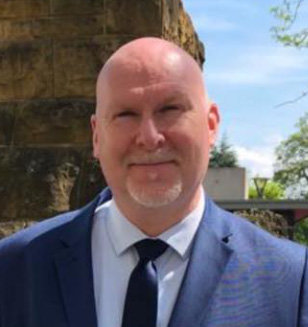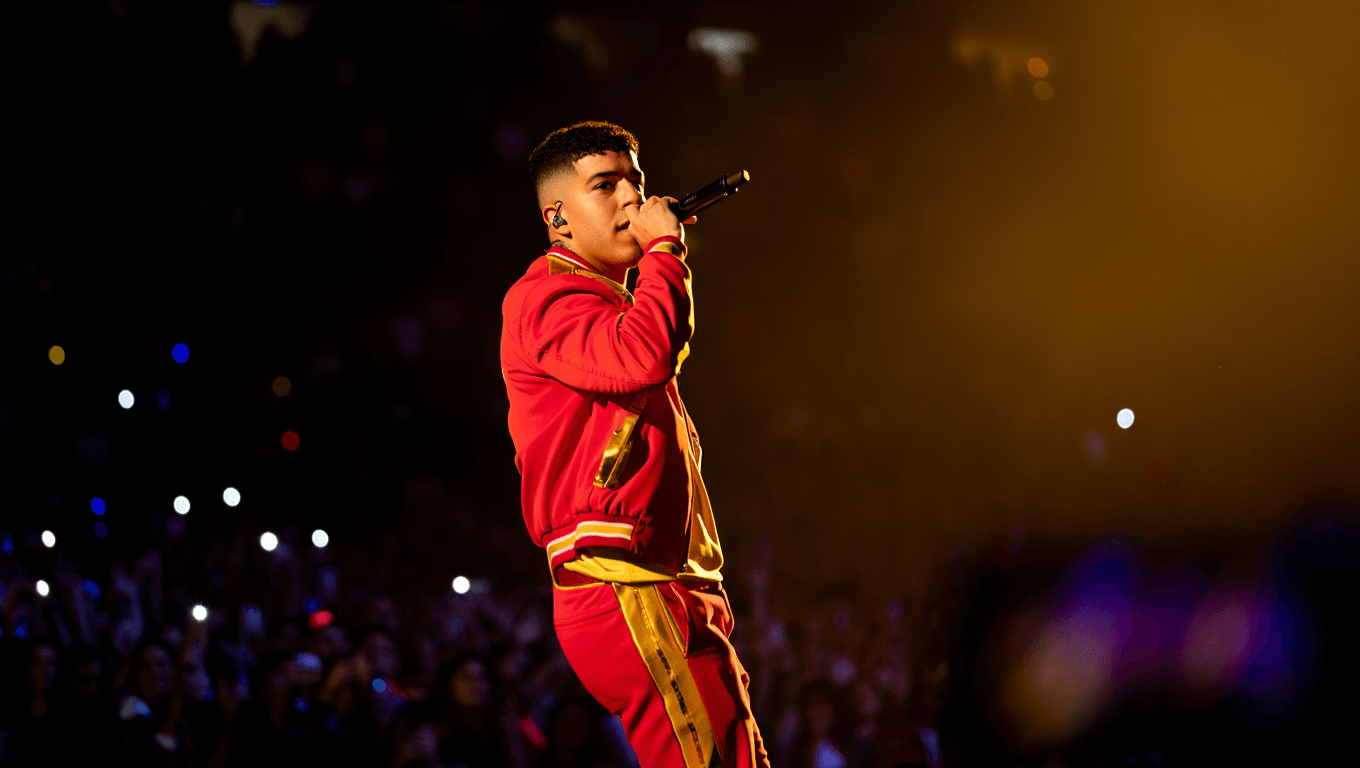Bad Bunny is headlining the Super Bowl LX halftime show on Feb. 8, 2026. The 3-time Grammy Award winner made history as the first artist performing primarily in Spanish. Despite massive backlash from conservative critics and political figures, the NFL stands firm on the decision. Commissioner Roger Goodell defended the choice, calling Bad Bunny one of the world’s most popular entertainers.
🔥 Quick Facts:
- Super Bowl LX takes place on Feb. 8, 2026 at Levi’s Stadium in Santa Clara.
- Bad Bunny is the first halftime headliner performing entirely in Spanish.
- A Change.org petition gathered over 80,000 signatures to replace him with country singer George Strait.
- NFL Commissioner Roger Goodell said there’s no reconsideration happening on Oct. 22.
- Turning Point USA announced a competing “All-American Halftime Show” program.
The Official Announcement Sparks Immediate Outrage
Bad Bunny revealed his historic halftime selection on Sept. 28, 2025. The announcement came during a Cowboys-Packers game broadcast. Social media erupted immediately with mixed reactions. Music fans celebrated the Puerto Rican superstar’s achievement with trending hashtags.
Conservative critics launched swift attacks on the NFL’s choice. MAGA YouTuber Benny Johnson posted that Bad Bunny was a “Massive Trump hater” with “no songs in English.” Fox News personalities amplified the backlash across cable television. The Spanish-language selection became the primary target for outrage.
“He’s one of the leading and most popular entertainers in the world. That’s what we try to achieve. It’s an important stage for us.”
Bad Bunny posted his response on social media: “What I’m feeling goes beyond myself. It’s for those who came before me and ran countless yards so I could come in and score a touchdown.”
Why Political Leaders Are Threatening the Performance
The controversy transcends typical entertainment disagreements. Bad Bunny has publicly opposed Trump’s immigration policies. He declined touring the mainland U.S. over ICE concerns affecting Latino fans. This activism fueled conservative criticism of the halftime selection. Former Trump campaign manager Corey Lewandowski threatened that agents would be present.
Homeland Security Secretary Kristi Noem declared on “The Benny Show” that ICE would be “all over” the Super Bowl. Her comments sparked national debate about immigration enforcement at major sporting events. Bad Bunny jokes about the controversy were well-received at his SNL appearance on Oct. 4.
Trust matters for performers at major events. The Bad Bunny selection represents cultural representation at America’s biggest sporting moment. His continued presence on the Super Bowl lineup despite threats demonstrates the NFL’s commitment to entertainment diversity and global appeal.
The Timeline of Backlash and Key Dates
Here’s how the controversy has unfolded:
| Date | Event |
| Sept. 28 | Bad Bunny’s halftime announcement during Cowboys-Packers game |
| Late Sept. | Conservative commentators launch social media attacks |
| Oct. 4 | Bad Bunny hosts SNL, addresses backlash with humor |
| Oct. 8 | Turning Point USA announces alternative “All-American” show |
| Oct. 22 | Commissioner Goodell affirms no reconsidering of Bad Bunny |
Over 80,000 people signed a Change.org petition demanding George Strait take the halftime spot. The petition falsely claimed Bad Bunny performs in drag. Donald Trump himself weighed in on Newsmax, calling the selection “absolutely ridiculous.” These attacks continued intensifying throughout October 2025.
What To Expect From Bad Bunny’s Halftime Performance
- Performance will be entirely in Spanish at the Super Bowl halftime broadcast.
- Roc Nation and Apple Music are co-producing the show with Jesse Collins as executive producer.
- Director Hamish Hamilton is crafting the creative presentation for global audiences.
- The show will celebrate Puerto Rican culture and Latino representation at the NFL’s biggest event.
- Performance takes place at Levi’s Stadium in Santa Clara, California on national broadcast.
Will the NFL Really Stick With Bad Bunny Despite Threats?
Commissioner Roger Goodell made the NFL’s position crystal clear on Oct. 22. He stated that halftime selections have “always” faced some backlash from various groups. Goodell emphasized Bad Bunny’s global appeal and unmatched streaming numbers among artists. The commissioner showed zero wavering despite mounting political pressure.
The NFL recognized that Bad Bunny represents modern America’s cultural diversity. His music dominates Spotify globally with billions of streams. The league is betting that his performance will deliver exceptional ratings and cultural resonance. Standing firm sends a powerful message about inclusion at the Super Bowl.
Will conservative backlash eventually force the NFL to reconsider? Current signals suggest the league remains committed to Bad Bunny through February 2026.
Sources
- NFL.com – Official announcement and Commissioner Goodell’s statement about Bad Bunny halftime show
- Rolling Stone – Comprehensive timeline of conservative backlash and political figures’ reactions
- Associated Press – News and quotes from NFL commissioner press conference
Similar posts:
- Super Bowl halftime show 2026 ignites backlash as NFL stands firm on Bad Bunny
- Super Bowl 2026: NFL stands by Bad Bunny halftime show amid controversy
- Super Bowl halftime show 2026: Bad Bunny confirmed, won’t be replaced despite backlash
- Super Bowl 2026: Bad Bunny stays as halftime headliner despite Trump criticism
- Super Bowl halftime 2026: NFL stands firm on Bad Bunny amid backlash controversy

Daniel Harris is a specialist journalist focused on the crossroads of breaking news, extraordinary history, and enduring legends. With a background in historical research and storytelling, he blends timely reporting with timeless narratives, making complex events and ancient myths resonate with today’s readers. Daniel’s work often uncovers surprising links between present-day headlines and legendary tales, offering unique perspectives that captivate diverse audiences. Beyond reporting, he is passionate about preserving oral traditions and exploring how extraordinary stories continue to shape culture and identity.

